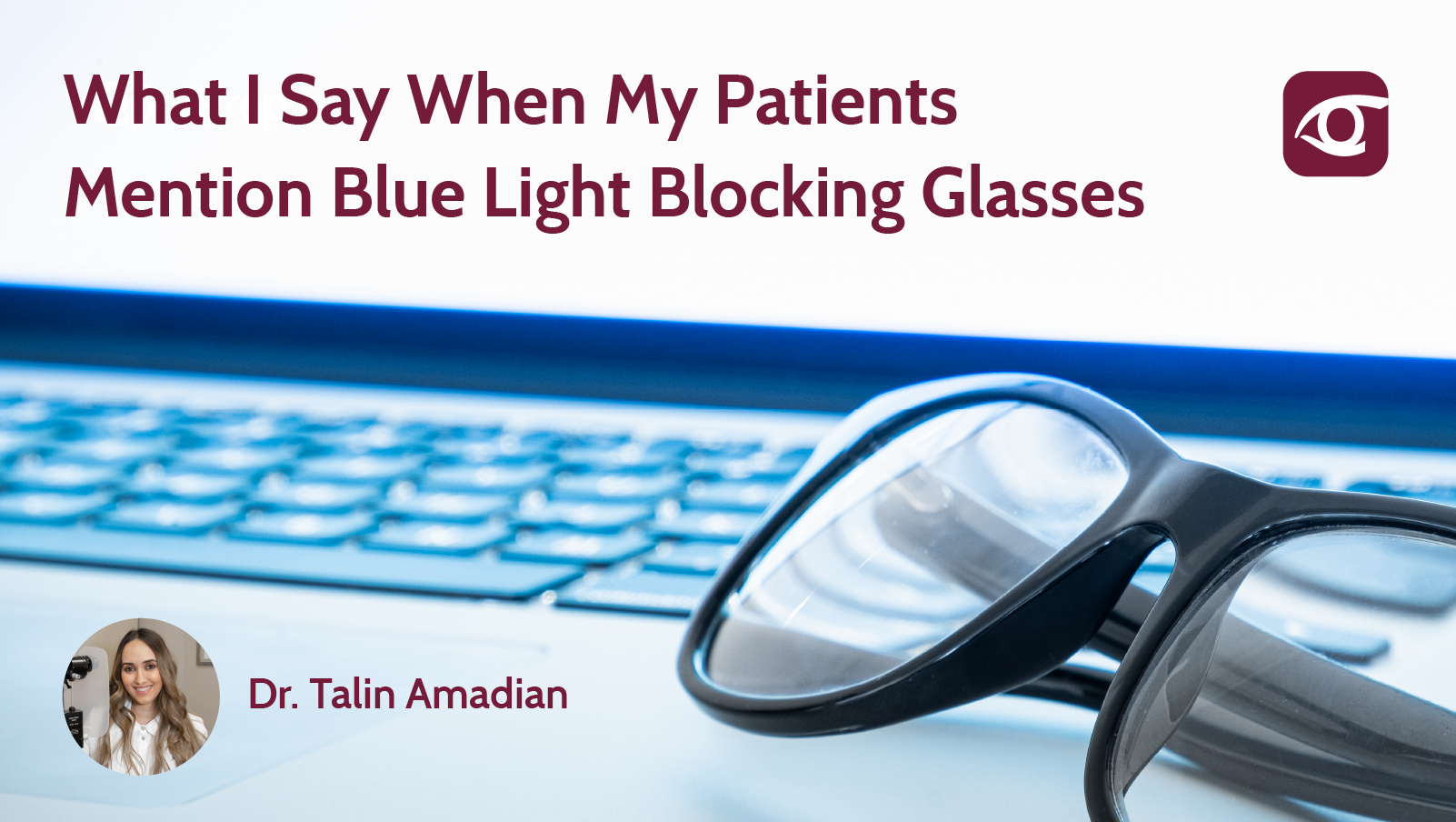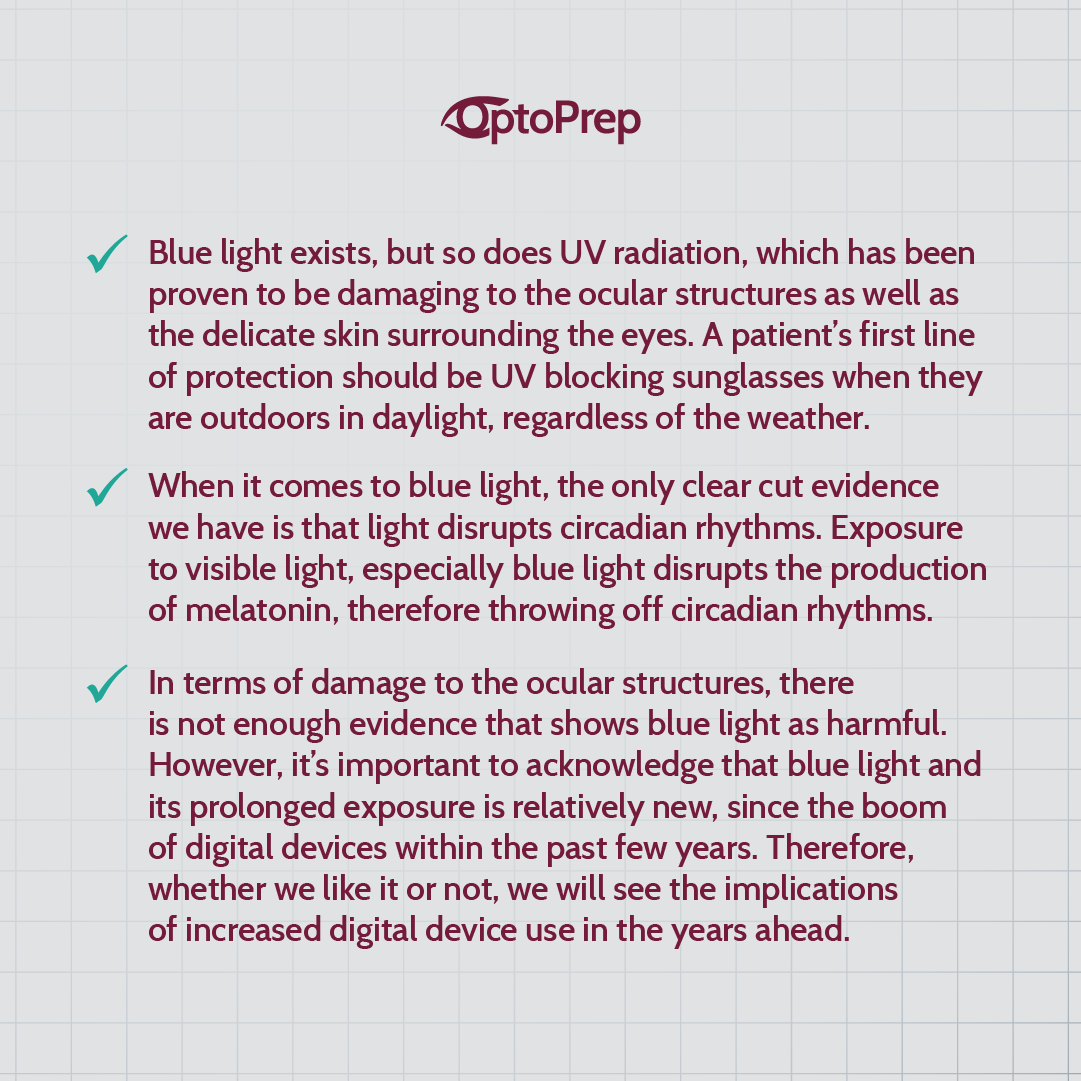
![]() Concerns about blue light exposure have been increasing within the past few years. Patients in my clinic ask me about blue light blocking lenses or tell me they wear blue light blocking lenses every single day.
Concerns about blue light exposure have been increasing within the past few years. Patients in my clinic ask me about blue light blocking lenses or tell me they wear blue light blocking lenses every single day.
Interest in this topic has primarily been caused by the rise of marketing companies targeting people using electronic devices, which is basically everyone!
People of all ages are accustomed to their smartphones, tablets, and computers beyond their responsibilities at work or school. Naturally, concerns come up when parents notice their children’s long-standing use of digital devices, so when parents or patients of all ages ask me about blue light, my thoughts are as follows:
- Blue light exists, but so does UV radiation, which has been proven to be damaging to the ocular structures as well as the delicate skin surrounding the eyes. A patient’s first line of protection should be UV-blocking sunglasses when they are outdoors in daylight, regardless of the weather.
- When it comes to blue light, the only clear-cut evidence we have is that light disrupts circadian rhythms. Exposure to visible light, especially blue light disrupts the production of melatonin, therefore throwing off circadian rhythms.
- In terms of damage to the ocular structures, there is not enough evidence that shows blue light as harmful. However, it’s important to acknowledge that blue light and its prolonged exposure is relatively new, since the boom of digital devices within the past few years. Therefore, whether we like it or not, we will see the implications of increased digital device use in the years ahead.

With all of that in mind, I acknowledge that a pair of glasses with a good anti-reflective coating and blue light blocking properties can be regarded as an additional layer of protection. This includes coatings offered at an optometrist’s office or reputable optical shop, rather than generic “blue light glasses'' online. Usually, these quality anti-reflective coatings with blue light blocking properties have a minimal hint of color that is hardly noticeable. If the color alterations don’t interfere with the patient’s line of work, I see these coatings as an additional layer of protection, should we find that prolonged exposure to blue light is harmful down the line. A pair of glasses with a patient’s prescription will help align the eyes and prevent digital eye strain far more than glasses with blue light protection. Having said that, over-the-counter “blue light glasses” can be a marketing tactic with no real protection at all.
With all the information surfacing the internet, stay on top of research since trending topics such as blue light tend to be studied often. However, with patients complaining of digital eye strain, make sure to perform accommodative and vergence testing, to understand where the strain is coming from and what other methods can be used to alleviate symptoms.
~ Dr. Amadian
